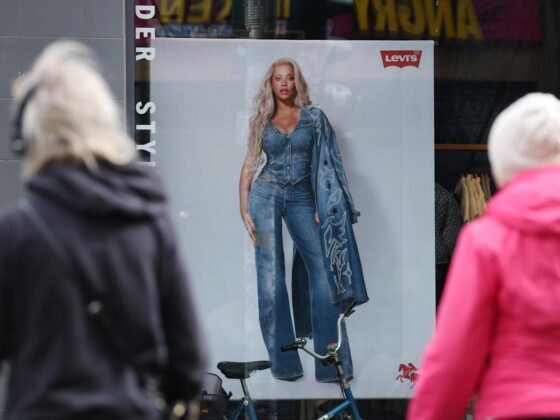Can’t (or don’t want to) get a bank loan? We have another option for funding your real estate investments: private money lending! If your DTI (debt-to-income) is too high, you’ve maxed out how many mortgages you can get, or you need quick cash to finance a renovation, house flip, or BRRRR (buy, rehab, rent, refinance, repeat), private money loans can float you. Today, we’re sharing how to find a private money lender, what interest rates they charge, who these loans are best suited for, and what documents to bring to get approved.
Dave is out on a search to find the perfect pickle for his sandwich, so we brought in a seasoned investor and trusted Real Estate Rookie host, Ashley Kehr. Today, she’s invited her private money lender, James Dainard, to the show to explain how private money works, how much money you’ll need to put down, rates and terms you can expect, and red flags a lender looks for.
But this isn’t just for borrowers. If you’ve got a serious sum of cash and want to lend to investors and pocket the interest payment, James will show you how. Plus, Ashley shares her exact private money lending structure that she worked out with James on a recent deal he lent to her.
Ashley Kehr:
If you’re low on cash and your DTI is maxed out, there is another option to grow your real estate investing business. Private money. I know it can sound intimidating or expensive, but private money is one of the most powerful tools available to investors if you use it safely today, we’ll explain how. Hey everyone, I am Ashley Care filling in for Dave Meyer today as guest host of the BiggerPockets Real Estate podcast. Today I’m going to bring you all inside a private money deal to explain how it works and how you can use it to scale your portfolio. And I’m bringing on one of my favorite lenders to help me do it. I think you’ll recognize him because it’s James Dard. James, welcome back to the show
James Dainard:
How you always just hit me up for money. You treat me like an ATM now.
Ashley Kehr:
It is great having a sugar daddy. I will say that. So James and I are going to break down all the details of a recent lending deal we did together with full transparency about our numbers. You’ll get to hear what makes a strong lending partnership from both sides of a deal, typical interest rates to expect how both borrowers and lenders can avoid some of the common red flags and so much more. So James, let’s jump right into this topic.
Dave Meyer:
Hey everyone, it’s Dave. Before we get into the show, I wanted to let you know about something really fun Henry and I are doing that I am really excited about. We are taking BiggerPockets on the road this summer and we’ll be driving around the Midwest to multiple different markets, looking for deals, meeting with agents, talking to the BiggerPockets community, attending meetups. It’s going to be a great time. We’re calling it the Cashflow Roadshow and it’s happening this July from July 14th to 18th across three different markets in the Midwest. We’re starting in Milwaukee, going to check out some markets around there. Then we’re going down to Chicago, ultimately winding up in Indianapolis, and we’re going to be doing all the stuff I said looking for on-market deals and looking at projects that BP community members are actually doing even in this market. And we might even do a deal or two of our own along the way.
So make sure to follow along to all the content we’ll be putting out about the Cashflow Roadshow. But I’m making this announcement because I want you all to join us if you live in either the Chicago or Indianapolis area, we’re going to be doing free meetups in those areas. The one in Chicago’s on July 15th, the one in Indianapolis is the next night on July 16th. Henry and I are going to be there. We’re going to be doing presentations, we’re going to be talking about local market dynamics. There’s going to be great networking and we even have a few cool surprises planned as well. So if you live in one of those cities, you want to hang out with us, get into the BiggerPockets community in real life, go to biggerpockets.com/roadshow to learn more. And these events, they are free, but I should call out that you do have to RSVP because there are limits to the venues and they will sell out. So make sure to go to biggerpockets.com/roadshow and reserve your spot today.
Ashley Kehr:
Let’s start with the very basics. Can you explain what private money is? How does this differ from hard money and other kind of conventional lending?
James Dainard:
So as investors, access to liquidity and capital, money is essential for growth. Typically when you’re buying a fix and flip property or a bur property, most of the time when investors are buying value add, they’re using a hard money lender. Now these lenders though are more institutional like where they have a lot more guidelines in rules and regulations like a traditional bank. They are a little bit easier to work with, a little bit quicker than a traditional bank, but they still have those guidelines and oftentimes they’re raising capital when they’re lending that out. A private money lender is someone that’s more of an individual that makes up their own rules on every different type of loan. And so typically it’s a individual who’s going to lend the money to another investor and not be using a bigger institution. And so it’s a private individual that’s financing the purchase or the rehab or in our case, I finance everything.
Ashley Kehr:
So one thing you said there was that they get to choose their terms as the private money lender.
James Dainard:
So I’m a little bit unique because we own a traditional hard money business where we have guidelines that we’d lend on and those guidelines are that our borrower needs to bring 15% down at the project. We want to see some skin in the game. Now, as a private money lender, I’m not using institution banks and other people’s money to run that company. It’s my own money and I lend it out of my own bank account or my own 401k. And because I’m the actual lender, I can make whatever rules up I want depending on whether it’s a newer investor, I might want some more money down whether I’m going into second position or whether I’ll do those or not, and I get to evaluate the deal. Truly for myself, the more risk in a deal I’m going to lend a little bit higher, the less risk I’m going to lend a little bit less. And so it allows me to do whatever I want with my own capital. And there’s no general structure. I do every deal a little bit different.
Ashley Kehr:
What would you say an average interest rate in terms of a deal that you’re doing right now? So maybe an investor that has some experience but it’s their first time coming to you, what would you say a typical deal kind of looks like?
James Dainard:
It kind of depends on loan to value and skin in the game or money that the investors bringing in. But on my typical loan where it’s just a first position loan, I’m usually charging about 12% and two points for my funds. So if I’m lending out a hundred grand and it goes for a year, I’m going to make roughly $12,000 in interest and $2,000 in points. Now if I’m going into a second position, which is riskier, I charge a lot more because the more risk in the deal the more I’m going to charge. And so I usually charge about 15 to 16% on those loans, but it really comes down to who the operator is, who’s buying the property, how experienced they are, and then adjust the interest
Ashley Kehr:
Rate. James, before we go any further, can you kind of explain what a first position lien is and a second position lien and how they differ?
James Dainard:
Yeah, there’s a big difference between first and second position lien. So when someone’s purchasing a property, they’re going to bring in a down payment. There’s always going to be what they call the senior lender, and that’s where if I’m bringing in let’s say 10% down on a purchase, that lender’s financed me 90%. So they are actually in the title chain as the first position lender for the purchase. When that property sells, they’re the first lender to get paid off. So let’s say the lender lends me $80,000 and I sell that property for a hundred thousand dollars no matter what before I see my money or anyone behind that lender, they’re getting paid off first, so they’re in the safest possible position. The second lender, which is a riskier position, is when someone comes in and they finances behind that senior lender, which is going to mean that they’re going to get paid off second on the transaction. So in that same scenario, if I sell that property for 90,000 and my first position lender was 80, they get paid off in full. But if my second position lender in a riskier spot has a $20,000 second, they would only get the first 10,000. And so they get paid back second behind the first, and that’s why it’s a little bit riskier position.
Ashley Kehr:
So now when you’re structuring this type of deal, you are not getting equity in the property. Can you explain what the advantages and disadvantages are of being just a private money lender of taking on the debt of the deal compared to if you actually partner with somebody and have equity in the deal?
James Dainard:
And I actually do both. As an investor or passive investor, I do both for a couple reasons. When you’re lending out and you’re just being a lender where you’re financing the deal and you’re charging an interest rate points in terms that loan, I have a personal guarantee signed on that loan. And so if you, on the loan we did, if you went into default and you didn’t pay me back and it sold for less than what I lent you to for, I would have debt that I can still issue and go get the money back for. And so the big difference is is you’re guaranteed your rate in return. When I’m lending you money, I know what my interest rate is, I know what my points, which are the origination points, that’s when you’re charging a percentage of the note balance as a fee, as a processing fee.
And when that deal sells, no matter whether it makes money or loses money, I will be paid back in full for my full loan terms. Now as an equity lender, which is a little bit different or a joint venture partner, it’s when I come in and I finance your deal and I maybe don’t make any interest on the property and I’m making a percentage of the profit. Now in that scenario, if you sell that property and let’s say it loses money, I’m the lender that actually takes the loss, not you as the operator. If I take that loss, I’m not going to have a personal guarantee against you too. It’s my risk in the deal. The benefit to equity is you typically will make a lot higher return. On my joint venture equity loans, I typically will make about 23 to 24% instead of 12, but if the deal goes bad, it’s my responsibility not the operators. And so that’s the big difference is as a hard money lender that charges just rates points and interest, you’re guaranteed your rate in points as long as the borrower can pay you back with equity, you’re investing in the property and so you’re risking that return more.
Dave Meyer:
This week’s bigger news is brought to you by the Fundrise Flagship fund, invest in private market real estate with the Fundrise flagship fund. Check out fundrise.com/pockets to learn more.
Ashley Kehr:
Let’s go into an example and let’s use one of the deals that I’ve done with you to kind of share the process of what this looks like. So the first thing is I have to have a deal and you have the money. So can you explain what you want from somebody when they’re asking for money? So what are the things that you’re looking at on the property to determine the risk? And if you should lend on the property, what should they have prepared and ready?
James Dainard:
Well, the first thing is I want to look at them more than even the deal. As a lender, I want to know who the operator is, what their experience is, and if you’re going to ask people to borrow money, then prepare a resume. And those resumes should have in there past deal experience. What’s your background in real estate? If you’ve done deals, how did those look like little mini case studies? Those are very helpful for me as a lender to go, okay, this person knows what they’re doing, even if there’s a bad deal, that’s a good thing to put in the resume. Hey, this deal went bad and this is what I did to fix it. That’s really what I want to see first, who’s the borrower? How experienced are they? And also warm ’em up guys, if you’re asking for money, get to know the person.
Don’t just come in, straighten the DM box going, Hey, you want to lend me some money? You got to warm up. The next thing that I look for as a lender is, okay, so I got a good operator. Maybe it’s even a new operator, but what does that deal look like? And so what I’m most concerned with when I am looking at a loan is what is the loan to value? What is the purchase price of the property? How much are they requesting for on the loan? And then what is that property potentially worth? Because that’s my mitigation against risk. That’s how I can reduce the risk in this deal. The borrower or the investor needs to submit to show what that property’s worth to make someone like me feel comfortable. I’m lending money with you, I lend it in New York. I don’t know New York that well as far as values go, but I can take a look at the comparables for the house.
What do those look like? How close are they? How long did it take ’em to sell? And then I request a scope of work. I want to know a detail of what you’re doing to that property in the upgrades and what that’s going to cost. Because if I’m lending money, and even if I’m lending out a hundred thousand, the property’s worth 200,000. If the rehab is 150,000, that’s a problem because they’re going to be well in the red. And how are they going to pay me back if they’re going that far of a budget or it’s never going to be able to be sold and get my money back? And so I’m really looking at the loan to value. The loan to value is on loan amount, the rehab funds going in your total cost purchase price, rehab, and then what is that property worth fixed up? And typically I want to be at least a 30% spread. So I want a 70% to 75% max loan to value because if the market goes down or something happens with that operator, there’s still equity in the property where I can hire it, figure it out, fix it up, and sell it and not take a loss.
Ashley Kehr:
You know what I’m going to do for everyone is I’m going to upload the comparable worksheet that I used when I sent my deals to you as to like here’s the comparables in the area. So you can go to biggerpockets.com/resources and you’ll be able to see every line item as to what I showed as to here’s how this house is different or similar. And then the other thing you had me do was submit a very detailed scope of work too and what the cost of that scope of work would be, each line item, what the cost is too. And I think that probably helps you figure out the risk as if somebody just sends you rehab house $50,000 ish compared to here’s a detailed breakdown that I put together with my contractor, what the cost will be if they actually have a contingency or not in place too. So maybe you could go over what are some of the red flags that you see when lending? What are some of the things you said? No,
James Dainard:
The more detailed you are submitting this loan request, it shows me how you are as a person, how do you run your job site, how professional you are. And so if someone reaches out and the first thing is, Hey James, you want to lend me money? That’s my first red flag. I’m like, I don’t even know you. That’s just strange to me as an investor. The second red flag is when I’m looking at the comps and they’re really far away. So I try to stick with appraisers rules where I’m sticking within a quarter mile, half mile or a mile. If they only have one value and it’s a mile away, well where’s all the other data points in the sales that are around my house? Because that’s a little bit unusual. The second thing is I want to know that detailed scope of work, a detailed scope of work, putting in paint carpet cabinets, this is what I’m doing and here’s actually what I’m putting in the property. And so just vagueness is always the biggest red flag to me because if you’re not prepared and sending it to me in the correct way, it means you’re not going to be able to run your job site that well as well. And so I’m always looking at the data points. Is there enough? Are they using appraiser rules? Is their scope of work a detailed breakdown or is it kind of throwing mud at the wall?
Ashley Kehr:
So this property that I had presented to Jimmy was a single family property. It was three beds, two baths. It was in a cute little neighborhood. It was definitely a starter home per se. And this was going to be the first flip that I had ever done on my own with without James as a partner. So James had trained me, I’d done a couple deals with him in Washington, and now it was time to spread my wings and go out on my own. So I hired a great contractor that I had used before for other properties and this property, I was actually a pocket listing. So my agent called me and said, Hey, I have this person, they’ve come to me and their mom passed away. It’s two sisters, they need to sell this property. I told them that you might be interested if you can get close to what they want.
They would rather just sell it and not list it and have to deal with showings and things like that. So I went and saw the property. We negotiated back and forth a little bit. One of the things that I always like to do when I’m dealing with an estate is offer for them to leave everything and I will take care of that. And that was a huge benefit for them because both sisters lived out of town. They didn’t really have any connections in the area or anything and just wanted be done. So that was one of the big things. We made the deal work. So I was able to get that under contract. And then that’s where James came in and we negotiated the terms of him lending on this property. So for this property, we did two points and 12% interest, and the interest in the points were rolled and wrapped into the loan to be paid in full. When I sold the deal at the end of the six months term, whatever came sooner, six months or when I closed on the deal.
James Dainard:
And I will say that I don’t do that term for every type of borrower, but the longer relationship that I bill with a borrower or an investor, that’s where I lent you the points and the interest were all paid off at the end. So you really had no money out of your pocket on this deal.
Ashley Kehr:
You did 100% financing of the purchase price. So that was 161,500. I paid the real estate commission of 8,500. That was part of my deal with them is that I would pay the full commission on the property, which is 8,500. I paid that out of pocket. And then I paid the rehab on the property too, which was about 50,000.
James Dainard:
And because you came out of pocket with the rehab, that keeps my loan to value down. And so that’s where I can defer my interest in points because what I’m looking at is if I want to be below that 70% loan to value when you purchase that property at 60%, I can put the points at the end, I can put the interest at the end. But once we start getting close to that 70%, that’s where I’m going to want you to make that monthly payment and even maybe prepay your points because that’s my guideline is be below this debt ratio. So it protects me as a lender.
Ashley Kehr:
And I will have to say it was actually pretty close to the six month deadline. I think there was a week left when that happened. So we had had some conversations about what happens if I don’t close. But one thing I did do, and I recommend if you are nervous about taking private money lending and you want to make sure you pay somebody back, have a line of credit or have access to other funds that you could use. So in my situation, I didn’t want to have to use my line of credit, but I was going to be able to use my line of credit to pay off James and then just wait for the deal to close there ended up being something, an issue with the sump pump inspection that delayed our closing by almost three weeks, which pushed our timeline back. So I think that’s kind of like a safety knot because for a long time I only had one private money lender and it was basically like, here’s a check, and it was a one piece of paper agreement, no liens, anything like that on the property. And it took me a while to be like, okay, if I want to grow and scale, I have to find other people that will lend me money.
James Dainard:
And I highly advise for everyone to not lend money like her last private money lending because you have to protect yourself. And so when we did our loan, I secured my money, I was able to lend you the money to get your purchase done. I’m making a great return for me, which is 12%, two points. You absolutely crushed the deal, so it was worth the expense of the money. But then you still have to protect yourself just signing a guarantee or a promissory note with the flipper or the investor. That’s risky because if that person just goes into bankruptcy or something really happens or a lien hits them, that personal guarantee is not that good. So what you always want to do is also file the right paperwork against the property to protect the loan. And so I always file a note and deed of trust, which is the terms of the loan, what we’re agreeing to when it’s due, if there’s an extension, what does that look like?
Is there a cost for it? Is there a higher interest rate? So everyone knows the terms of the loan and then it is filed with a note and deed of trust and a promissory note and it’s recorded against title and it always closes with title insurance. It’s very, very important as a lender, the loan has to be insured because if I just lend you that money and there’s no insurance, and let’s say there’s a big lawsuit because it was a fraud sale or it was something that could unwind the whole deal, my money is not going to be protected. And so having the right paperwork is essential in this business.
Ashley Kehr:
We’re going to take a short break, but when we come back, we’re going to talk more with James on how to protect yourself as a private money lender. Welcome back. Thank you so much for joining us. And don’t forget to go to biggerpockets.com/bp because James and I will both be there this year and we’ll actually be sharing a stage with his project manager drilling him on everything you need to know about doing a rehab. So we would love it to see you guys there. Head over to biggerpockets.com/conference to grab your ticket. Okay, so James, what are some other red flags or things that you should be doing to protect yourself when you are giving out private money?
James Dainard:
Before you issue a loan, you want to look at the borrower, you want to look at the underwriting, but then you also want to review the title, what’s going on with the title and who’s the escrow company closing it? And as a private money lender, I’m financing deals in all different types of states. New York, Arizona, Florida, Texas, California. Each one of those states has different regulations and lending laws, and it’s really important that you understand what the lending laws are before you issue money.
Ashley Kehr:
And where do you find that out? What’s the best way to figure out those laws and regulations for your state?
James Dainard:
So you always can get a quick background on the internet, but I always hire an attorney per state to give me a rundown of how lending works, what’s the default process if I need to go through that with the personal guarantee? How are the documents recorded with our loan? It was a different structure that I wasn’t used to, but the attorney could walk me through the process, what’s the difference? How does that work in the default? How is it recorded and how is my money protected? And so you always want to hire an attorney to do all of your documents that is locally in that state. Don’t go out of state. Use the professionals that know what they’re doing. Another person that you always want locally too is a local broker because you can hire a broker to do a BPO for you on a property with the scope of work. And as I’m lending money in let’s say Arkansas or New York, I don’t know that market. I know everything else. And so I always like to have a third party give me their own broker’s price opinion that’s separated from the investor so they can give me some honest feedback on what the property is.
Ashley Kehr:
I was just looking up what the fee was, the attorney fee for you on the mortgage side for doing the mortgage in New York, and it was $150, which was then added to my costs for the loan. So I mean, you think in the realm of things of hiring an attorney to represent you $150 is worth the protection of having to do that. And you’re not even paying it. You’re wrapping it in so that the person you are lending to is adding that to their loan.
James Dainard:
And that’s something I always tell any investor is like, Hey, if I’m getting new in the state and I’m hiring the attorney, I pass those fees along to ’em because I don’t want to lend my money out at 12% and they get feed up to do it and I’m really making 10 because I have a certain risk tolerance that I want for me to lend you money. I want to make at least 12% or I’d rather just invest it elsewhere.
Ashley Kehr:
Okay, so let’s move on to you as the borrower for private money. Have you done deals where you’ve actually taken someone else’s private money?
James Dainard:
Oh yes, definitely. Especially in 2008, nine and 10 or eight, nine after the recession. There was not a lot of money out there. Hard money lenders not like there is today. Your typical hard money lender wanted 25 to 30% down and they were going to be 12% and four points. And we didn’t have a lot of money. We had lost a lot of money, and so we needed better leverage. And so for the first year out of the recession, I financed all private money with an individual and it was expensive. He would give me a hundred percent of financing and 50% of the rehab cost, if not a hundred percent, but it was four points at 18% interest. But for us it was a cost to the deal. We had to do this to kind of grow the business and it was the best thing we ever did.
Ashley Kehr:
And probably your competitors were getting the same. So it wasn’t like a competitor was getting way better interest rates where you were losing out on deals because the terms were so awful. That seems like it was kind of the standard at that time.
James Dainard:
And that was definitely when the vibe of real estate was like it had leprosy too. No one wanted it after 2008, literally. I mean I could have had a free house and people were like, get that away from me. It was just people had a bad experience with real estate. And so it was definitely a lot less competitive. There was a lot more opportunities, but the profit and the margins were way smaller. And so that was the thing we had to pay attention to. Profit was small, the risk was high in the market, and then we had this very expensive debt, and so that’s how we got going out of the recession and eventually we saved up our money could get cheaper money. But today we still use private financing. There’s a bunch of different ways that we use it. I don’t use it as much on our flip projects, but we will bring in partners if we need more capital, if we have a lot of projects going on, I can raise the debt on the property.
Typically when we’re buying, we’re putting 15% down on the total project, we put down our cash. But as we see better opportunities and if there’s a home run deal in front of me and I don’t have the cash, I will call a private lender that I know and they’ll give me that second pretty quickly by building that long-term relationship. And so it gives you access to liquidity and cash when you need it. And that’s the thing, you never want to abuse debt. You never want to abuse money. You need to be very cautious of when you ask for it or not ask for it. But it’s essential for growth. If we have a home run deal and I don’t have the cash, I got to borrow that money. And so we still use it today, A lot of what we do it for is even on our development projects, they’re bigger, they require more cash. We pay our lenders a pref rate and they can get a little portion of the equity or they can get a higher rate. And so it really is essential for growth in our real estate space.
Ashley Kehr:
So would you say that when you’re deciding on debt partners or equity partners when they’re bringing the capital, is it based on what your current situation is with your own business finances, if you have the money for the deal or not, and also the property type or what the deal is. Is it very much case by case or do you have kind of set parameters of this is the scenario I take on equity partners? This is the scenario I take on debt partners.
James Dainard:
The reason you should do look at both, because people ask me that all the time. They’re like, why do you take on equity partners? You’re just giving away the profit and you’re fairly experienced. You have access to capital. So why would you do that? Right? Because if I can borrow the money at 12%, why would I give away a portion of my equity and give up more on that? But there’s a benefit to it. So one is that debt is debt. So I can say anybody that lends me money, I will pay it back one way, shape or form. They will get paid back in whole with an equity partner. They’re partnering with me on the house and if something goes wrong and let’s say I have 10 projects going at the same time and the market drops 20% for whatever reason, 2008 happens. Again, if all 10 of those are in debt and I have to write a check for $50,000 on each one of those houses, I’m going to owe 500 grand by the time I’m done selling these houses and I have a big hole to go into.
If I have five in debt, then I owe 250,000. And my equity partners unfortunately, are taking the hit, but that’s kind of what they signed up for. And so it is a way to balance risk because you don’t want to get too heavy into one bucket, and that’s why I always balance it out. Now what I do with equity partners is I’m really big on long-term relationships. So really if you’re putting equity with me, you have to do other types of loan scenarios for us because for me, I can enhance my lenders experience with us by giving them a great return on a fix and flip, but then they also give me access to maybe 10% money on different types of loans. And so it allows me to reduce my cost of money when I borrow, but also get my lender and my partner a really good return. And so it’s a really win-win picture. And so that’s why I like to do both because it keeps a partner for a really long time. Most of the people that I do borrow hard money from or private money from, they’ve been partners of ours for over five, 10 years. I don’t need a million lenders. I need a set of really good ones that we trust each other and we can do business and make decisions quickly
Ashley Kehr:
Because there definitely is some learning curve even to somebody who is an experienced private money lender. I’m sure just coming into how you like to set things up for yourself for your business or finding out that somebody wants to actually be involved in the process, asking for updates every week as to what tile color did you pick, where if you can build those relationships. And I think that’s the lesson here is if you have that good relationship and work well with each other with that person trust you, you trust them. You’re sending them their updates when appropriate or whatever it may be, or you’re paying them on time and you guys work well together. Those are the relationships to keep and sometimes giving up more such as paying a higher percentage at first when you first start using them can help maintain and build those longer relationships that work out for the long haul.
James Dainard:
Yeah, and if you hit me up for a loan, let’s say you wanted a second loan right now, I look at the loan I had with you and go, how much did you put into it? How much did I put into it? The second loan, I might say, Hey Ashley, how would you feel about us kind of partnering more on this one together? The benefit to you is, you know, have access to more cash that I’ll give you. And the benefit to me is I can take on a little bit riskier higher return by partnering and maybe making more and I get to work my money steady. So it gives it a blended partnership, and that’s really important, always matching and aligning with people that you’re going to borrow cash from or work with because that’s really how you build really long-term partnerships, and that is key for real estate
Ashley Kehr:
And just the flexibility of being able to negotiate to something that works for both of you that it’s not so black and white of like this is the way it’s set. This is what I do, is finding those partners that are able to work with you.
James Dainard:
We’re all trying to get higher passive income where we can work less and have steady capital coming in, steady cashflow. We buy rental properties just like everyone else where we’re trying to get a rental property and we’re collecting cashflow. But what this has really helped me for is we’re an expensive market and we’re buying rental properties. They don’t cashflow a ton at first. The equity growth is great for us. The hard money and the private money lending side pays me this high interest, which actually it balances out my total cash investment between my rentals and my hard money to where on my portfolio between houses and cash, I can hit 18, 19% in get growth. And so that’s the real benefit of it because people do ask me that all the time, why do you lend the money out at 12% when you’re making 30 40% off?
Flips is that time value of money, but it’s about balancing and setting up that long-term vision. And it’s a great thing that you can do. I mean private money lending also, you can lend out of your 401k and I have a self-directed 401k. Actually, your loan that I did with you was through my self-directed 401k. So I get to collect 12% interest and two points all tax free. So there’s so many different ways that you can lend money out. You just have to do it a safe way because lenders also lose a lot of money.
Ashley Kehr:
Also, there’s a resource on BiggerPockets where you can learn more about doing a self-directed, are you right? You can go to biggerpockets.com/blog/free-courses. Okay. Well thank you guys so much for listening to the show today. If you enjoyed this episode, make sure you’re subscribed to the BiggerPockets YouTube channel and the real estate rookie one. When I’m not filling in here for Dave Meyer, you can find me on the Real Estate Rookie podcast and James co-hosting on the Market podcast. We’ll be back with another episode in a few days. Thank you guys so much for joining us.
Help us reach new listeners on iTunes by leaving us a rating and review! It takes just 30 seconds and instructions can be found here. Thanks! We really appreciate it!
Interested in learning more about today’s sponsors or becoming a BiggerPockets partner yourself? Email [email protected].













